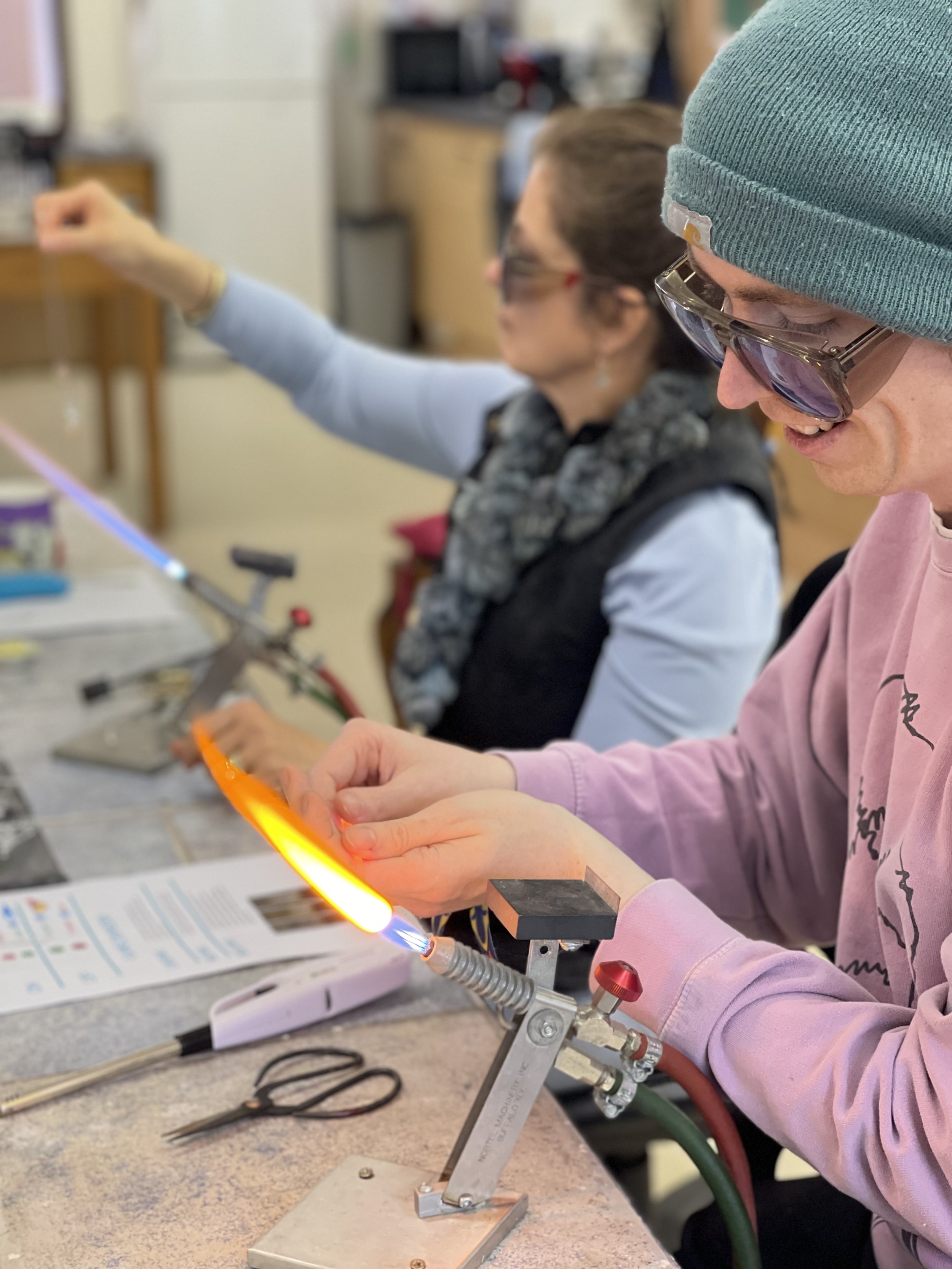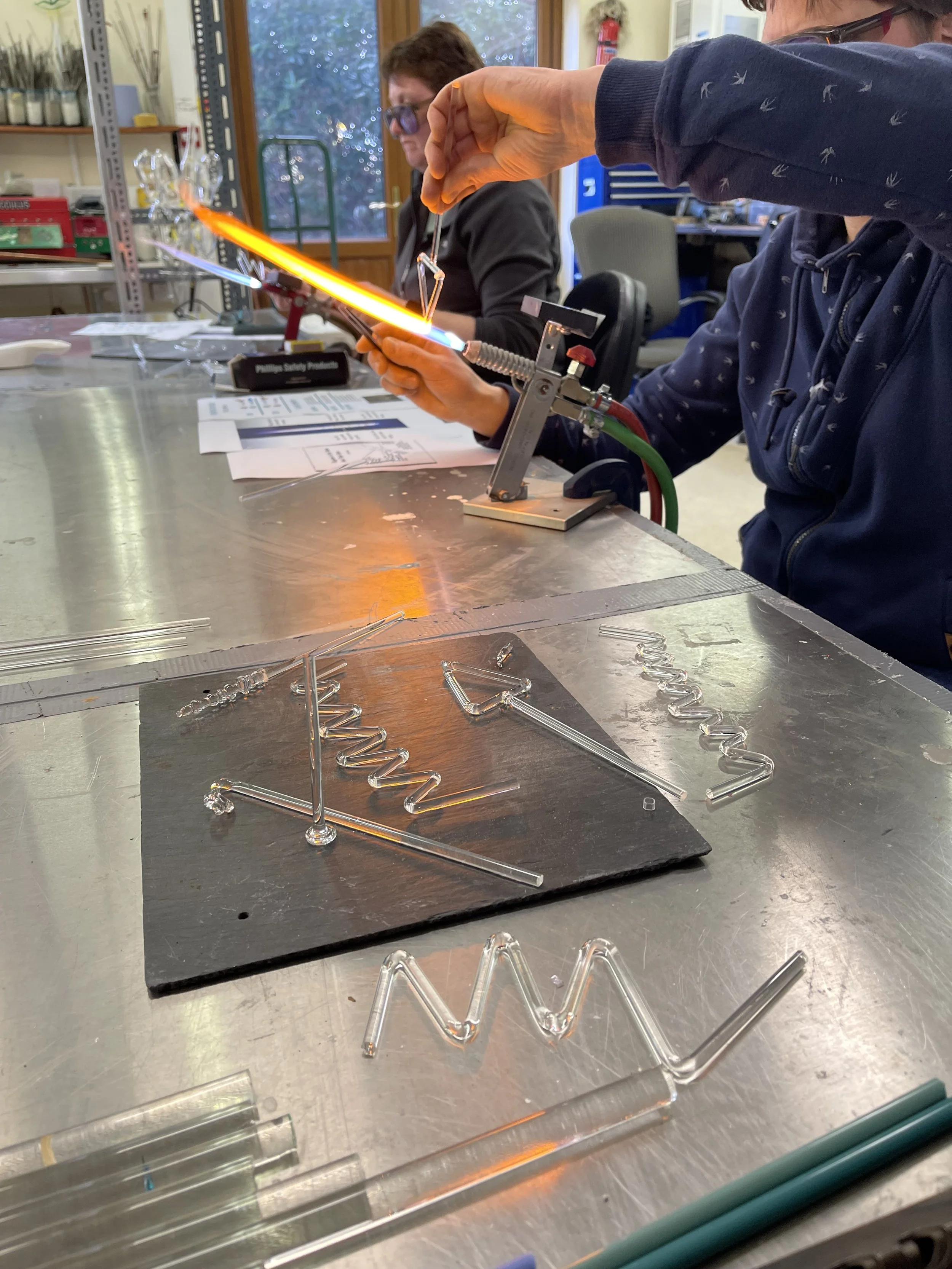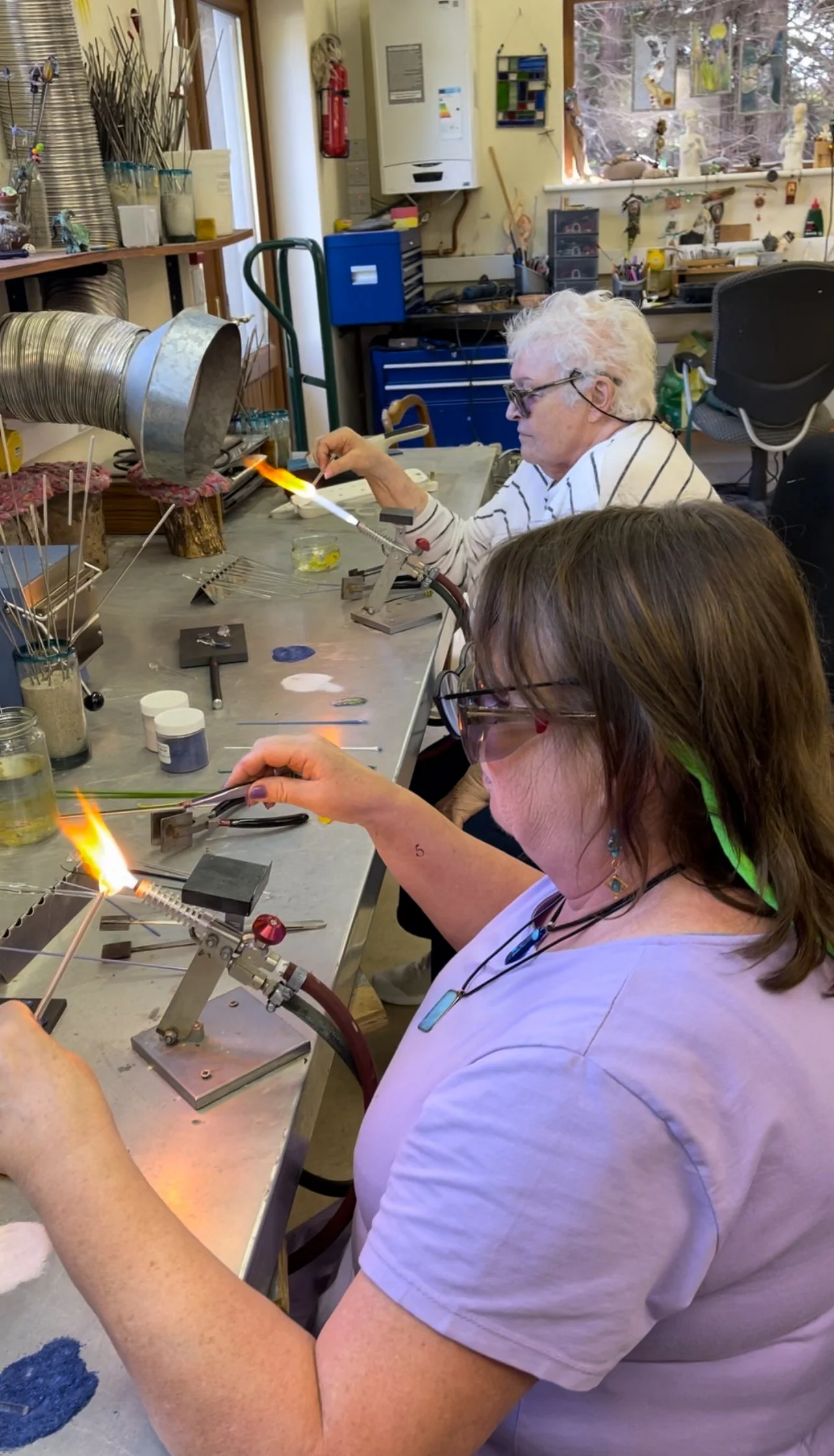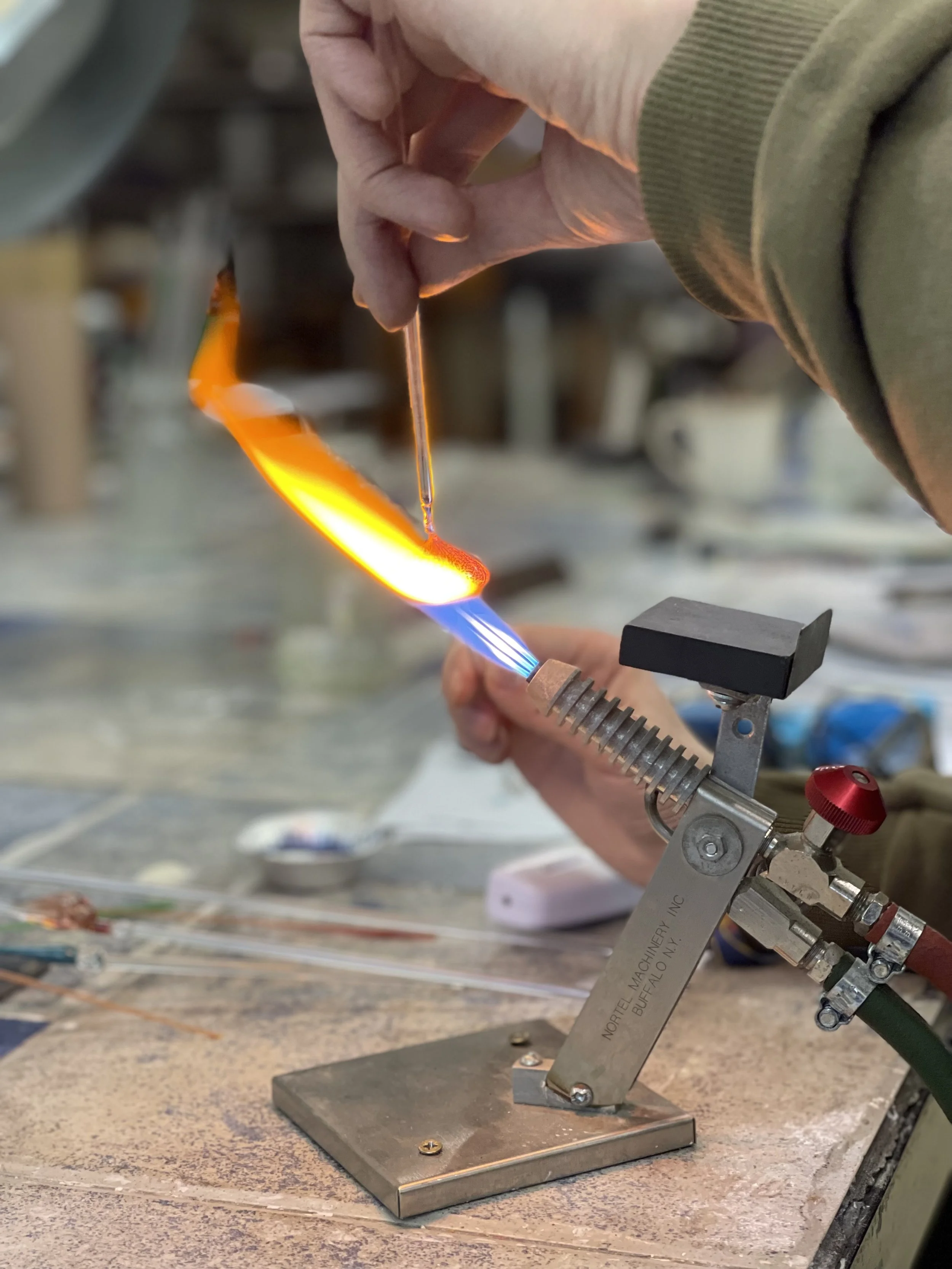Introduction To Borosilicate Glass Flamework
Beginner Class
w/ Lindsay LeBlanc @LooLooGlass
August 9th & 10th, 2025
(10am to 4pm)
€285
Optional Day 3: Monday, 11th (11:00-4:00) open torch practice €15.00 p/h
Class fee includes all materials required
Class fee includes lunch each day
Accommodation available on campus - contact us directly via email for more details and to book
Class Description
Join us for a hands-on, two-day workshop designed for beginners eager to learn the fundamentals of flameworking with borosilicate glass. This immersive "flameshop intensive" covers essential techniques for working with this unique, durable glass. You'll learn how to balance between heat and hand control, explore various methods for creating both delicate and robust glass art, and gain confidence with essential tools and torch flame chemistry.
Each day combines technical demonstrations, hands-on practice, and personalised guidance, offering a complete introduction to the art of shaping borosilicate glass. By the end of the workshop, you'll have created your own glass pieces and gained a solid foundation in this exciting craft.
Class Structure
You'll learn how to manipulate molten glass using heat, gravity, and traditional tools, with a focus on beginner-friendly techniques like colour application, shaping, welds, loops [for jewellery applications, and hot sculpting techniques!
Day 1:
Introduction to tools, equipment, and flame chemistry
Hands-on practice melting, shaping, and connecting glass rods
Individual instruction to refine your technique
Day 2:
Learn colour application using glass rods and frit
Assemble glass components
Open studio time for guided practice and experimentation
Optional Day 3: 11-4 open torch day for practice €15.00 p/h
What is Borosilicate Glass?
Borosilicate glass, developed by German glassmaker Otto Schott between 1887 and 1893, was originally designed for scientific and medical use due to its durability, shock resistance, and ability to withstand high temperatures.
Melting Point:
With a melting point of 1252°C, borosilicate has a low coefficient of thermal expansion (COE) of 33, which means it cools and stabilizes slowly, allowing intricate details to form without cracking.





